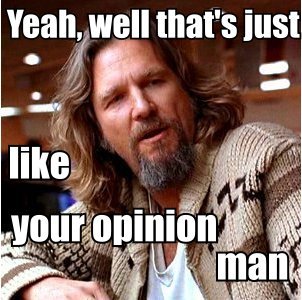Writing is Work. A Belated Reaction to the NYT

This weekend a lot of writers took note of the Sunday NYTimes article by Julie Bosman, “Writer’s Cramp: In the E-Reader Era, a Book a Year Is Slacking“. Bosman reported that we writers need to work harder. It’s not enough to be in marketing and promotion mode half the time. It’s not enough to being tweeting and blogging up a storm on the side. If you want to stay a writer, you need to up that output and be prepared to give away more of your work for free. Quote:
The push for more material comes as publishers and booksellers are desperately looking for ways to hold onto readers being lured by other forms of entertainment, much of it available nonstop and almost instantaneously. Television shows are rushed online only hours after they are originally broadcast, and some movies are offered on demand at home before they have left theaters. In this environment, publishers say, producing one a book a year, and nothing else, is just not enough.
To tell you the truth, this article wasn’t a surprising read for me. What did surprise me was the reaction of some other writers.
Chuck Wendig, a writer I dig on Twitter, wrote a post called, “On the Privilege of Being a Writer” detailing the hard lives of labor of his ancestors and telling us writers, to paraphrase his wonderful Wendiggity voice, “Stop crying you stupid crybabies. You aren’t doing mother f*#%ing manual labor.”
Another writer, Marie-Paule Graham, tweeted to me that we needed perspective as we aren’t curing cancer. And, of course, she’s right. Writers aren’t on the path to curing cancer. (Although, it should be noted, the medical and pharmaceutical industry hasn’t cured it either.)
What we writers are, however, is part of the economy, that big, screwed-up, globalized division of labor and allocation of wealth machine. If it makes a writer feel better to take the view that being a writer is like being a privileged escapee from the workforce because we writers can work in our pajamas if we want, well, OK. But it happens not to be true. We’re not that exceptional. Unless you are Ted Kaczynski writing your manifesto on home-pulped paper in the woods, you are part of the economy.
Since the banking crash of 2008, America’s productivity has notably grown in spite of a workforce that now has five million fewer workers. Fewer workers are carrying more of the workload (and without the army of worker mecadroids modernity promised us!) If you’ve ever been the survivor of a layoff, you’ve been told before, “Sure, you get to keep your job. And the reward is you can do Bob’s job too, since he’s fired. Of course, your pay will stay the same. Employment is prize enough!”
It’s simply more work for the same pay. The literary market is demanding the same sacrifices of its workers. While I’m certainly grateful I’m not confined to a career of hard manual labor, these developments are nothing to be happy about. They are a formula for burn-out whether applied to writers or teachers or ‘cubicle creatures’.
But enough with gratuitous rhyming. What happens now to the writers who aren’t machines, who can’t brand-up and hire a team like James Patterson, who can’t turn out literary product like widgets? The literary world has had its share of one-hit wonders. Are publishers even going to take a look at a writer with one fabulous book if they don’t come with a ready-made “platform” or if they can’t be certain that a steady stream of more will follow?
Writers have always lived by “publish or perish.” But like the rest of economy, the current market may be steering towards the entrenchment of a literary 1% in which 99% of writers work away for little benefit and the top 1% sucks the wealth out of the market on the backs of others.
UPDATE May 18:
Marie-Paule Graham wrote me to say she thinks her tweets were misrepresented in my reference to them above. So, you decide. Here’s our brief Twitter stream of 13 May below:
Maryann Breschard @Breschard
@mpg4 2K a day is like rock n’ roll on the road. U can only do it for so long before the burnout comes & u trash a hotel room.Marie-Paule Graham Marie-Paule Graham @mpg4
@Breschard Tell that to the cancer doc with her never ending stream of patients. Perspective is all I’m sayingMaryann Breschard @Breschard
@mpg4 OK, but tell the cancer doc in question he or she now has to see twice as many patients per year for the same pay.Marie-Paule Graham @mpg4
@Breschard She does. AND this year she took a pay cut.
Again, I would argue that writers being required to produce more for less pay (no advances, free novella giveaways, etc.) and doctors being required to do more and take pay cuts are both reflective of the something common in the globalized workforce.

